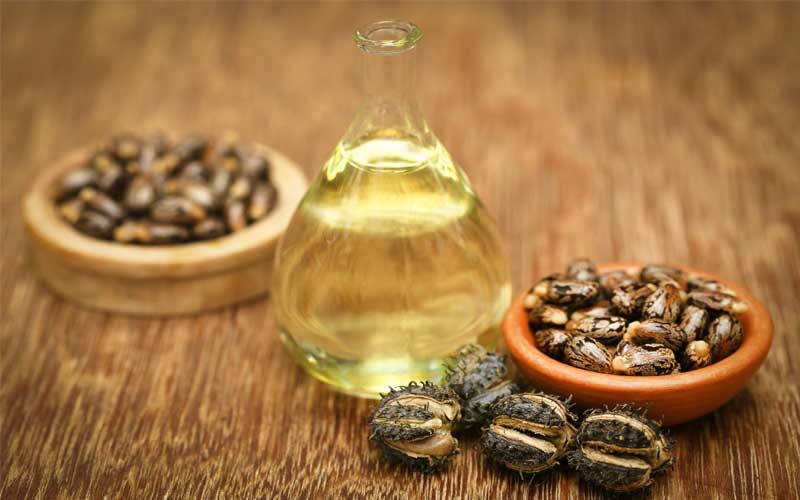
Cold-Pressed Castor Oil
Cold-pressed castor oil is made by mechanically pressing castor beans; usually, no heat or chemicals are used in the process. The nutrients and natural ingredients in the oil are preserved with this process.
Deodorized Castor Oil
Compared to unrefined castor oil, deodorised castor oil has a gentler odour since it has been refined through a process that eliminates impurities and balances its natural aroma.
Blown Castor Oil
Through a procedure known as “blowing” or oxidative polymerization, castor oil is transformed to create blown castor oil. Through this procedure, the oil’s thickness and viscosity are increased, creating a special product with changed characteristics.
Low Moisture Castor Oil
Castor oil with less water content is referred to as “low moisture castor oil.” Because of its processing to reduce moisture content, this kind of castor oil is especially well-suited for several industrial uses.
Refined Castor Oil
Refined castor oil is a refined variety of castor oil that has been treated to enhance its colour, purity, and aroma. Usually, filtering, bleaching, and deodorization are used in the refining process to produce a product that is cleaner and more useful.
1.Refined Castor Oil DAB10 Grade:
– This particular grade of refined castor oil, guarantees a high degree of quality, purity, and adherence to pharmaceutical specifications.
– This type of oil majorly used in Pharmaceutical applications, Cosmetics and healthcare products
2.Refined Caster Oil EP Grade:
– Refined Castor Oil EP Grade refers to castor oil that complies with the quality and purity standards outlined in the European Pharmacopoeia. This grade ensures a high level of quality, safety, and consistency in accordance with European pharmacopoeia standards.
– This type of oil used for pharmaceutical and cosmetic products.
Pharmaceutical Grade Castor Oil
Pharmaceutical grade castor oil is a highly refined and purified form of castor oil that meets strict standards set by pharmacopoeias or regulatory authorities. This grade ensures the oil’s suitability for use in pharmaceutical and medicinal applications.
3 Types
- Virgin Castor Oil BP Grade
- Virgin Castor Oil EP Grade
- Virgin Castor Oil USP Grade
Hydrogenated Castor Oil
Hydrogenated castor oil is made by the hydrogenation of ordinary castor oil, a process that involves the addition of hydrogen to unsaturated fatty acids. Castor oil becomes thicker and more consistent as a result.
3 Types
- Hydrogenated Castor Oil USP Grade
- Hydrogenated Castor Oil EP Grade
- Hydrogenated Castor Oil Powder
Castor Oil Derivatives
Castor oil derivatives are like special versions of castor oil made by changing it using different chemicals. These special versions have different qualities or features compared to regular castor oil.
5 Types
- Castor Oil Soap
- Jamaican Black Castor Oil
- Turkey Red Oil
- Methyl Easter of Castor Oil
- Trihydroxystearin
